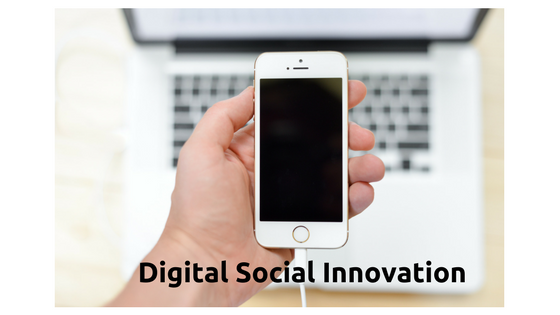Making the Most of Digital Social Innovation (DSI) at London Tech Week

Earlier this month I was lucky enough to land a ticket for the ‘Making the Most of Digital Social Innovation’ session being run as part of London Tech Week.
Taking place at Nesta, the two panels focused on how organisations are using digital social innovation (DSI) to provide new ways to deliver public services and social impact.
DSI refers to the growing movement of people, projects and organisations using digital technologies to tackle some of society’s biggest problems.
Key Speakers
Centrepoint
First to speak was Gaia Marcus – programme manager at Centrepoint.
Centrepoint has implemented a strong digital programme in order to understand why so many young people are homeless. They set about doing this in two ways – by bringing together stats from government, local authorities and charities to create ‘Yhdatabank’ and setting up the Centrepoint Helpline.
It was interesting to see that there was a huge difference in statistics from the three databanks they mined. It was equally interesting to hear that although they’ve received calls from around 150,000 young people asking for advice, only 20,000 young people are listed as ‘homeless’ by the authorities.
Another salient message Gaia delivered was to “be just good enough” when creating projects. You won’t necessarily know what your user’s needs are when you start, so you should always iterate, iterate, iterate!
Spacehive
The second speaker, Niraj Dattani from Spacehive, has worked closely with the Greater London Authority to create local government projects through crowdfunding.
Their focus is to ensure that everyone can get involved in reshaping and improving their local area. The crowdfunded water slide in Park Street, Bristol, for example, cost around £5,000 to be installed but has brought over £120,000 of revenue to the local economy!
E-Quality Time
Joe Reddington from E-Quality Time took to the stage next to explain how The Open Voice Factory came about after realising AAC devices are expensive and unreliable. The Open Voice Factory is the first open source assistive communication software that is free, making use of APIs to offer flexibility and deliver ‘real free speech for all’.
Lessons learnt
From listening to the panel talks, I’d summarise the key mistakes companies make when it comes to DSI as:
- Not understanding who your users are
- Trying to build stuff that already exists
- Not being agile – if you’re not agile you’re not learning quickly enough and you’re not making mistakes that you can learn from
- Making things too complicated
Digital transformation isn’t about tech… it’s about people
The second panel focused on the importance of collaboration between people and technology. Helen Milner, CEO of The Good Things Foundation, spoke about the importance of empathy and judgement when it comes to digital innovation. The strong message from her talk was to remember that 90% of people who are digitally excluded are also socially excluded, such as people out of work, homeless or in poor health.
Helen stressed the importance of digital when it comes to leadership: ‘If you’re a leader and are not thinking about digital then you’re not a leader!”
Rachel Coldicutt (CEO at Doteveryone) highlighted the divide between understanding and knowledge. Just because something is easy to use, it might not necessarily be easy to understand. Rachel spoke of how lots of digital companies are inundated with young (often very young!) men who are understandably trying to solve problems that are important to them but which may not reflect society as a whole.
Amazon, for example, have created headphones that cut out when your name is spoken, so they can carry on listening to music/blocking out the outside world whilst they code! This is obviously important to them, but surely if they have the ability to solve ‘problems’ like these, surely we can be solving more social problems with technology.
In summary
A great deal of work is being done to explore ways and foster relationships with local community groups by using digital tools. The Future Cities Catapult centre is one project that has broken down barriers between local government and communities to create an ecosystem where people share resources, skills and time.
On the point of communities, Helen Milner pointed out that while it’s great that those on the front line of technology are rushing ahead with cutting-edge solutions, we must ensure we are not leaving behind the people who should benefit the most. We have to make sure those in more deprived areas are getting equal access to great tech projects, such as code clubs for kids.
A great session with some really interesting takeaways. A great reminder that here at dxw we must continue to combine empathy, creativity and technology in all our projects for the public sector, ensuring the users’ needs are always met.
If you’d like to find out more about the work Nesta do, head over to http://www.nesta.org.uk/